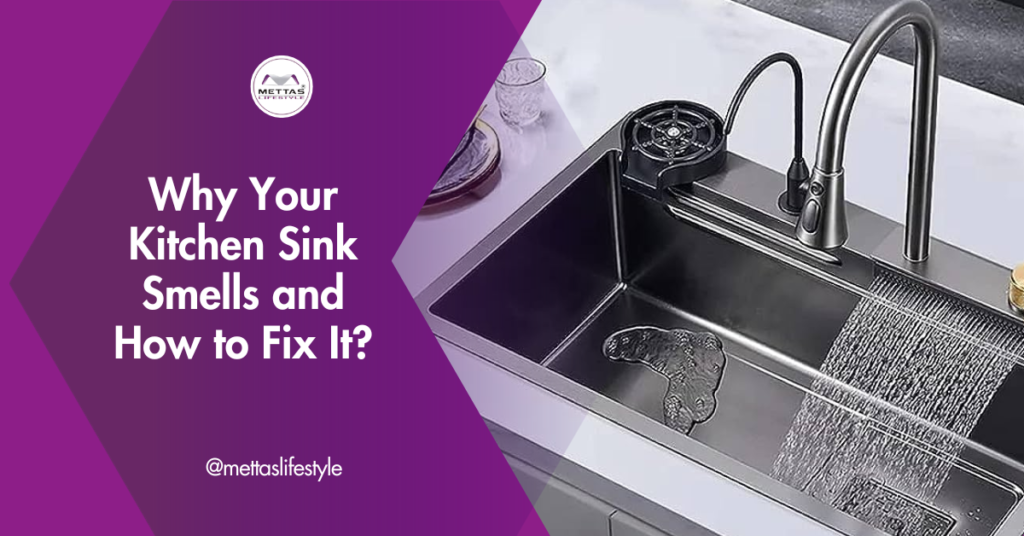

Table of Contents
ToggleIntroduction-Kitchen Sink Smells
The kitchen is often considered the heart of the home, but what happens when an unpleasant odor starts emanating from your kitchen sink? A foul smell in your kitchen can be a nuisance, making cooking and spending time in the kitchen an unpleasant experience. If you’re wondering why your kitchen sink smells and how to fix it, you’ve come to the right place.
In this comprehensive guide, we’ll explore the common causes of kitchen sink odors and provide you with effective solutions to eliminate them. Whether you’re dealing with a mild, occasional odor or a persistent stench, we’ll help you restore a fresh and inviting atmosphere in your kitchen by Mettas Lifestyle.
1. Common Causes of Kitchen Sink Odors
Understanding the root causes of kitchen sink odors is the first step in tackling the issue effectively. Here are the most common culprits:
Food Residue Buildup
One of the primary reasons for a kitchen sink smells is food residue that accumulates in the drain and pipes over time. This residue can include food particles, grease, and other organic matter that provide a breeding ground for odor-producing bacteria.
Grease and Fat Accumulation
When fats, oils, and grease (commonly referred to as FOG) are washed down the drain, they can solidify and adhere to the pipes. This not only causes blockages but also leads to unpleasant odors as the FOG decomposes.
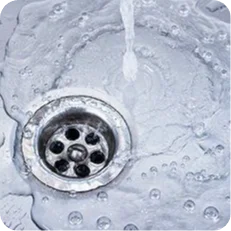
Blocked or Dirty Drain Pipes
Blocked or partially clogged drain pipes can trap food debris and wastewater, allowing bacteria to thrive and produce foul odors. These blockages can occur due to a buildup of food particles, soap scum, or mineral deposits.
Garbage Disposal Issues
If you have a garbage disposal unit in your sink, it can become a source of odors if not properly maintained. Food remnants trapped in the disposal can decompose and release unpleasant smells into the kitchen.
Stagnant Water
Stagnant or standing water in the drain trap (U-bend) beneath the sink can emit musty odors. The water in the U-bend is designed to create a barrier that prevents sewer gases from entering your home. If this water evaporates or leaks out, odors can escape.
Now that we’ve identified the causes, let’s explore how to prevent these odors from taking over your kitchen.
2. How to Prevent Kitchen Sink Odors
Preventing kitchen sink odors is often more manageable than dealing with them after they’ve become a problem. Here are some preventive measures to consider:
Proper Food Disposal
- Scrape Plates: Before washing dishes, scrape off food residues into the trash or a compost bin.
- Use Sink Strainers: Place sink strainers or drain filters in the sink to catch food particles before they enter the drain.
Regular Cleaning
- Clean the Sink: After each use, rinse and clean your sink with mild dish soap and water. Don’t forget the faucet and handles.
- Run Hot Water: Run hot water down the drain for a few minutes after using the sink to help flush away grease and prevent it from solidifying in the pipes.
Use Drain Filters
- Install sink strainers or drain filters to prevent food particles and debris from entering the drain.
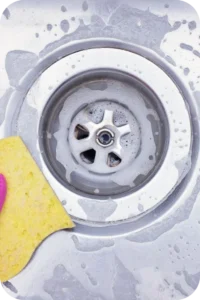
Maintenance of Garbage Disposal
- If you have a garbage disposal, use it according to the manufacturer’s instructions.
- Regularly clean the garbage disposal by grinding ice cubes and citrus peels to help remove buildup.
Running Hot Water
- Periodically pour a kettle of boiling water down the drain to dissolve and flush away grease and food residues.
By adopting these preventive measures, you can significantly reduce the likelihood of kitchen sink odors. However, if odors persist, it’s essential to know how to eliminate them effectively.
3. Home Remedies to Get Rid of Kitchen Sink Smells
When kitchen sink odors occur, you don’t always need to resort to commercial cleaners. Here are some effective home remedies to tackle those unpleasant smells:
Baking Soda and Vinegar
- Pour half a cup of baking soda down the drain.
- Follow it with a cup of white vinegar.
- Let the mixture fizz and work for about 15 minutes.
- Flush the drain with hot water.
This combination helps break down organic matter and neutralizes odors.
Lemon and Ice Cubes
- Place a few ice cubes and lemon or orange peels into the garbage disposal.
- Run the disposal while running cold water.
The ice helps clean the blades, while the citrus peels provide a fresh scent.
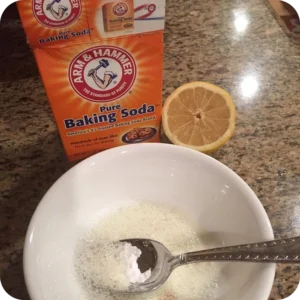
Boiling Water
- Boil a kettle of water.
- Carefully pour the boiling water down the drain in stages, allowing it to work for a few seconds between each pour.
Boiling water can dissolve and flush away grease and soap scum.
Salt and Baking Soda
- Mix equal parts of salt and baking soda.
- Pour the mixture down the drain.
- Let it sit for several hours or overnight.
- Rinse with hot water.
This combination helps break down and eliminate odors.
These home remedies are safe, eco-friendly, and often readily available in your kitchen. However, for stubborn odors or severe blockages, you may need to consider commercial products.
4. Commercial Products for Odor Removal
Several commercial products are designed specifically for removing kitchen sink odors. Here are a couple of options to consider:
Enzyme-Based Cleaners
Enzyme-based drain cleaners contain natural enzymes that digest organic matter, effectively breaking down food particles and grease. Follow the manufacturer’s instructions for the best results.
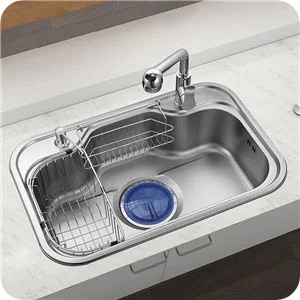
Drain Deodorizers
Drain deodorizers are designed to provide long-lasting freshness. They often come in the form of sticks or capsules that are placed in the drain or garbage disposal. These deodorizers gradually dissolve and release a pleasant scent.
5. Professional Help: When to Call a Plumber
While home remedies and commercial products can resolve many kitchen sink odor issues, some situations may require professional assistance. Here are signs that it’s time to call a plumber:
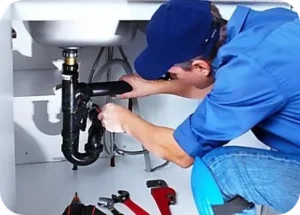
Persistent Odors: If odors persist despite your efforts to eliminate them, there may be a more significant issue within the plumbing system that requires professional diagnosis and repair.
Slow Drainage: Slow drainage or recurring clogs can indicate a blockage deep within the pipes that needs professional attention.
Gurgling Sounds: Unusual gurgling or bubbling sounds coming from your drains can be a sign of a blocked vent or other plumbing problems. A plumber can assess and address the issue.
Sewage Odors: If you detect sewage-like odors, it could indicate a problem with the sewer line or sewer trap. This requires immediate professional intervention to prevent health hazards.
Water Leaks: Any visible water leaks around your sink or pipes should not be ignored. Leaks can contribute to mold growth and foul odors. A plumber can identify and fix the source of the leak.
Ineffective Garbage Disposal: If your garbage disposal is not working correctly or is causing persistent odors, it may require repairs or replacement. A plumber can diagnose the issue and recommend the appropriate solution.
In these cases, it’s best to contact a licensed plumber who can conduct a thorough inspection, identify the root cause of the problem, and implement the necessary repairs or replacements. Ignoring these signs can lead to more significant plumbing issues down the road.
Conclusion
A smelly kitchen sink can be a real nuisance, but with the right preventive measures and remedies, you can keep your kitchen smelling fresh and pleasant. Regular cleaning, proper food disposal, and occasional maintenance are key to preventing odors from taking hold.
In cases where odors persist or indicate more significant plumbing issues, don’t hesitate to seek professional help. Addressing plumbing problems promptly can save you time, money, and the discomfort of dealing with foul odors.
Remember that a clean and fresh-smelling kitchen not only enhances your cooking experience but also contributes to a healthier and more enjoyable living environment.
Related topics you must read: How Much Does Modular Kitchen Cost?
FAQs
While bleach can disinfect and temporarily mask odors, it’s not the best solution for long-term odor removal. Bleach may also harm your plumbing and the environment. Opt for eco-friendly alternatives like baking soda and vinegar.
Regular cleaning after each use is ideal. At the very least, aim to clean your sink and run hot water down the drain daily. A deeper cleaning with remedies like baking soda and vinegar can be done weekly.
Yes, there are eco-friendly and biodegradable drain cleaners available. Look for products labeled as environmentally friendly and safe for septic systems.
To maintain your garbage disposal, regularly run cold water while using it to help flush away food particles. Periodically clean it by grinding ice cubes and citrus peels. Avoid putting fibrous or hard materials like potato peels and bones into the disposal.
While kitchen sink odors are generally unpleasant rather than harmful, they can indicate plumbing issues that may lead to health hazards if left unaddressed. Sewage-like odors, in particular, should be addressed promptly to prevent health risks.
You can prevent the water in the U-bend from evaporating by running water down the drain regularly. Simply turn on the faucet and let the water flow for a few seconds to refill the U-bend trap.
Yes, you can use essential oils to add a pleasant scent to your kitchen sink. Mix a few drops of your favorite essential oil with baking soda and sprinkle it down the drain. Let it sit for a while before rinsing it with hot water.
If you notice a sewage odor, it’s crucial to call a professional plumber immediately. Sewage odors can indicate a problem with the sewer line or sewer trap, which requires immediate attention to prevent health risks and further damage.
Yes, kitchen sink odors, especially those associated with food residue, can attract pests such as fruit flies and cockroaches. Keeping your sink clean and odor-free is essential for pest prevention.
To prevent grease buildup, avoid pouring grease down the drain. Instead, collect it in a container and dispose of it in the trash. Running hot water after using the sink can help prevent grease from solidifying in the pipes.





2 comments. Leave new
[…] Related topics you must read: Kitchen Sink Smells […]
[…] Have questions about your next renovation project? We’ve got answers. Let’s do this together. […]